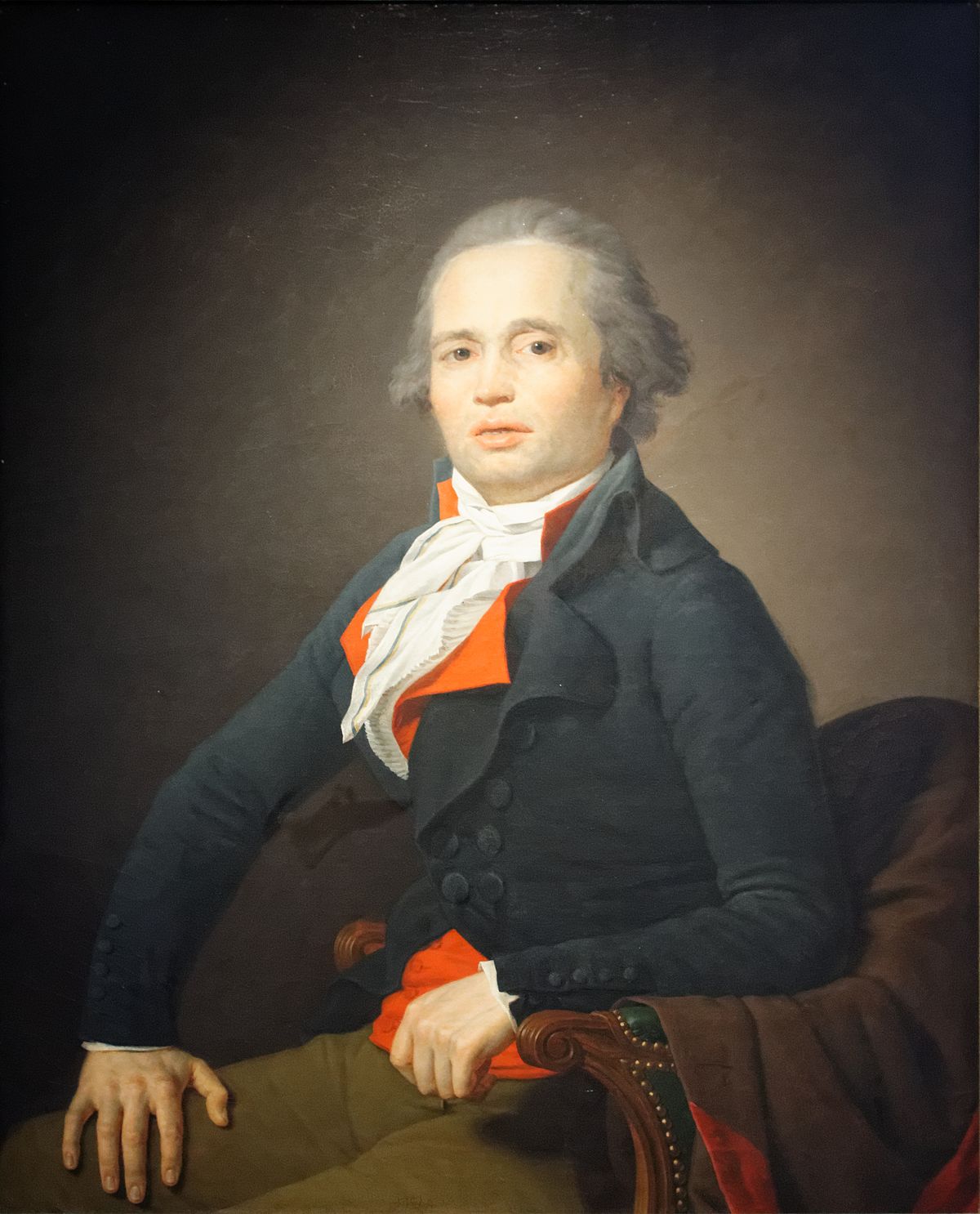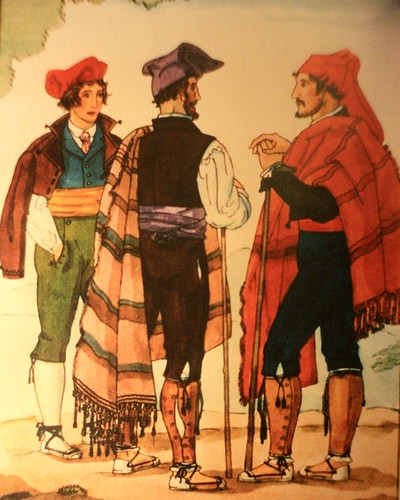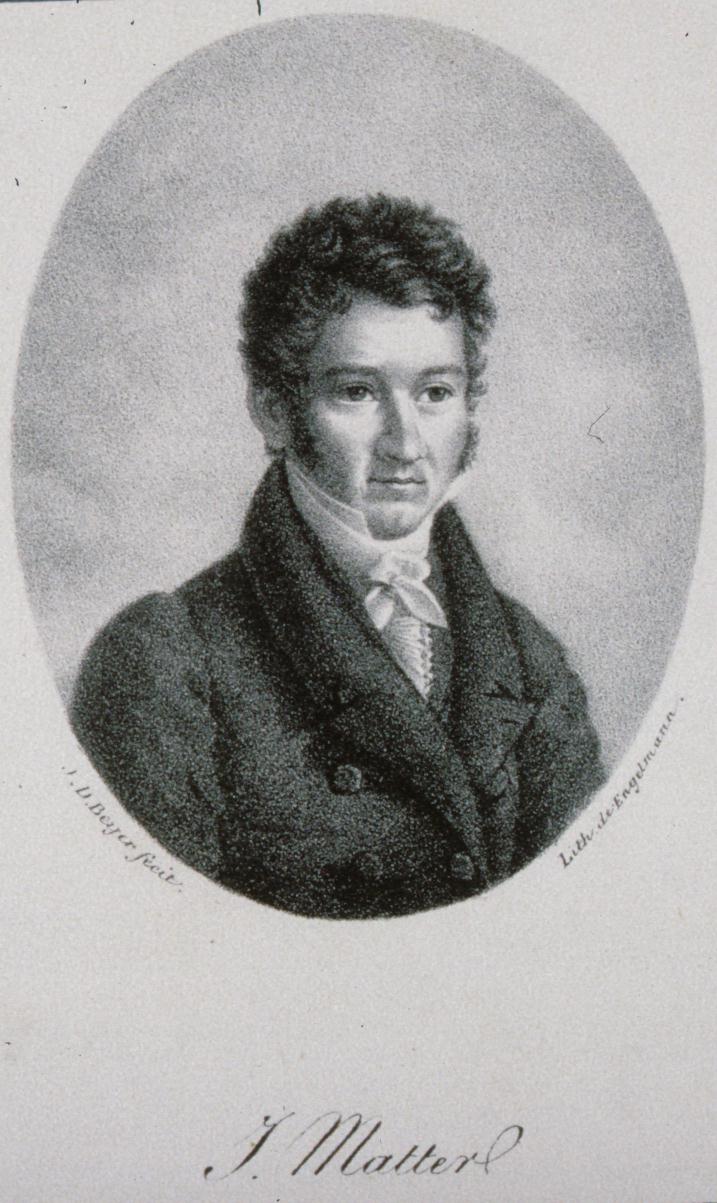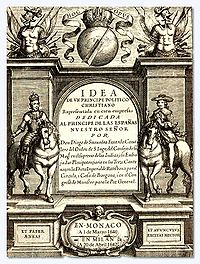Diego de Saavedra Fajardo (1584 - 1648),writer and diplomatic channels. Fools of Europe. / posthumo dialogue by don Diego Saavedra Fajardo. 1748.
- "... no province enjoyed greater assets nor was happier freedom than Catalonia, because it was the owner of herself, governed by her own forts, styles and customs ... (The king) did not impose taxes nor forced her to Attendance-if any, they were donations, granted by graceful freedom, not by constraint. If they were sent by commissioners, they represented the authority of ambassadors. Their orders (from the king) were not mandates, but propositions. (...) In her He did not represent the majesty of the king, but that of the count, and even in many things one could doubt whether he was a citizen of Barcelona ... "
Pierre de Marca , historian and French archbishop, (1594-1662). He was sent by King Louis XIV of France during the French administration of the Principality of Catalonia of the Reapers' War. In 1656 he was entrusted with the mission of delimiting the new border that arose from the Treaty of the Pyrenees to the Ceret Conference.
 - " Catalans, one and the other, rich and poor, young and old, dream of independence and absolute freedom with a government that is their own."
- " Catalans, one and the other, rich and poor, young and old, dream of independence and absolute freedom with a government that is their own."
Count of Espenan. Report of August 10, 1640.
- "The Catalans want to liberate themselves from the monarchy of Spain and make their country a Republic of which Barcelona is the head " ... the people who are trying to make it happen to you is extremely public et riche et la diputation possède December immense treasures depuis longues Anee " Nicolas de Fer(French) (1646-1720) was one of the biggest producers of maps of the seventeenth century. 1706
- "The Catalans are working, strong and spiritual, loving independence and suffer domination of its neighbors"
- "The Catalans are trabajadores, y fuertes spiritual lovers of independence and bear with con domination of its neighbors."
Louis Le Gendre (1655-1733), historian, canon of Notre-Dame de Paris.
 - " The Catalans, jealous of their freedoms, had just revolted. The King of Spain had imposed the winter quarters of their troops, taxes and new laws, all of them contrary to their old laws, according to which this province was governed as a free state for a long time, the Catalans had ambassadors in the same court of their King, and did not obey their orders if these were not in accordance with the Uses and Customs of their Country. "
- " The Catalans, jealous of their freedoms, had just revolted. The King of Spain had imposed the winter quarters of their troops, taxes and new laws, all of them contrary to their old laws, according to which this province was governed as a free state for a long time, the Catalans had ambassadors in the same court of their King, and did not obey their orders if these were not in accordance with the Uses and Customs of their Country. "
Nouvelle histoire de France depuis Pharamond jusqu'à ce jour (Musier, Paris, 1699)
Voltaire (François Marie Arouet), France, 1694-1778.Writer and philosopher, father of the French encyclopedia.
In his extensive work, he wrote a book about King Sun titled Le Siècle of Louis XIV, in which he refers to the War of Succession and the struggle of the Catalans for their liberties.
Voltaire (François Marie Arouet), France, 1694-1778.Writer and philosopher,- "Catalonia is one of the most fertile countries in the world and the most well-situated. Regated by beautiful rivers, streams and fountains, as well as the old and new Castile are private, it produces everything essential for to the needs of the man and everything that can eagernize his desires: trees, grains, fruits and vegetables of all kinds. Barcelona is one of the most beautiful ports in Europe, and the country provides everything necessary for the construction of boats. Their mountains are full of marble, jasper and rock crystal quarries, and there are also many precious stones. Iron, tin, lead, alum, iron mines Sulphates are abundant; the eastern coast produces coral. Catalonia, in short, can dispense with the entire Universe and its neighbors can not do without it.
The abundance and delights have not crowded the inhabitants of Catalonia, but these have always been warriors and the mountain peasants have been fierce, above all; However, in spite of their value and their extreme love for freedom , they have been subjugated at all times: the Romans, the vases, the vandals, the Saracens dominated them. "
Le Siècle of Louis XIV, 1751
Voltaire . Voltaire's complete works; Chap. XXIV, page 183:
- "La Catalogne is one of the most fertile terrain lands, and you will be happily placed. There is a beautiful rosette of beautiful rivers, ruisseaux and fountains, that Vieille et la nouvelle Castille is in the store, which is produced by all who This is the necessity for the kisses of the human being, but whoever can flatter their dyes, in trees, in blés, in fruits, in vegetables of fresh spices. Barcelona is one of the beautiful ports of Europe, and you pay close to all The construction of the ships, whose mountains are replete with marble, jasper, rooftop carpets, where you can find the best of precious stones. The mines are made of marble, of lead, of alun, of vitriol, And it is not enough: the eastern coast produced by the coral. Catalonia, at last, could pass from the whole universe, and you will come to passer from them. "
Francisco Sebastián Manuel Mariano Nipho and Cagigal (Alcañiz , Aragon , 1719 - Madrid , 1803), Aragonese journalist .
- " It is not doubt that Catalonia pays taxes, even outside the laws of proportion, more than any other province [...] The industry and application of the Catalans is one of the biggest arguments that can be made to others provinces of Spain, to accuse their negligence. "
Charles Maurice de Talleyrand-Périgord ( Paris , France , 2 February of 1754 - 17 May of 1838 ) was a French prelate and diplomat, Duc de Talleyrand-Périgord, prince of Benevento .
- "Catalonia is the least Spanish in all the provinces of Spain".
The Principality of Catalonia. Osterreichisches Staastarchiv.Vienna. Spania Varia, 80. Italian author document. Trieste. 1765.
 |
| Mercado del Born. Barcelona.Eighteenth century ... |
- "The Catalans happen to be a laborious nation, full of courage, honor and love for freedom , have often, as an example of the Dutch, have the idea of becoming independent. We see today evidence of their industry drowned by taxes they crush it and the rudeness and hardness with which they are governed (by Spain)
Regarding his courage, they gave evidence that provoked him during the entire War of the Spanish Succession. The inhabitants of Barcelona are still faithful to the memory of Emperor Carles (of Austria), who conserves in their cellars and caverns illuminated portraits around them. When Catalans can forget a bit the oppression under which they moan, they are glad in nature.Catalonia is a nation with a lot of genius and very industrious.A foreigner who did not know any other point in Spain, if he entered Barcelona, and judged by this city all the inhabitants of this vast kingdom, would create the most laborious people in the world. After the reduction and subtlety of the Principality of Catalonia,
I'm naturally gay. That's one
nation de beaucoup de genie et très industrieuse. A foreigner who pointed out Spain, if only in between Barcelona, and who lives everywhere in the city, the inhabitants of it went to me, they croaked the genes of the most labored (...).
Depuis la réduction of the Principality of Catalogne, lui il est plus the rest of her ombre ancienne liberty ... "Maximilien Sébastien Foy , (1775 - 1825 ), major general of the First French Empire, statesman and writer.
.jpg) |
| General Maximilien Sébastien Foy |
- "Catalonia is less a province of Spain than a small state subject to the scepter of the Catholic monarchs. They have other customs, another language, a social organization different from that of Castile. (...) Beyond the Peninsula no there is so much freedom and independence set (...) (The Catalans) do not forgive (in the French) of having imposed, at the beginning of the eighteenth century, the king who humiliated his pride and destroyed his privileges. (...) " A French observer of the time (1808) , quoted by Pierre Conard.
- "Catalans in general are enthusiastic supporters of independence. Their proud character makes them consider the king of Spain rather as a despot, whose ancestors have subdued them, that with a king, a father and a support; Even Catalans are considered as a particular, independent and enemy nation of the inhabitants of Castile and the other provinces of Spain. " Claude-François-Xavier, abbot Millot(1726-1785) Ecclesiastic, historian, member of the Académie Française
- "The Catalans are always willing and ready to free themselves from the yoke of Spain. A rebellious, brave, courageous people, very jealous of their freedoms. They want French domination, less because of the desire to serve France than in hope that the French are guaranteed against the Spanish oppression ". (refers to the War of 9 years. 1694).
The rebellious and indecisive character of the Catalans, their hatred for the Castilians, who do not hate them less; the greed of the latter (the Castilians), their invectives against others, their intrigues, opposed to the success of such an important case, all multiplies the obstacles. "(Referring to the Cortes summoned by Philip V in 1702) Mémoires politiques et militaires to serve the history of Louis XIV and Louis XV (1777) Jacques-François Duggomier (1738-1794). French general, Commander of the army of the Pyrenees. He wrote a memo southern Catalonia , in 1794
- "Catalan is brave, active, laborious, an enemy of Spain, has always loved Freedom, and when I see add that Equality, this Queen of Nations, will soon join those who fight for their principles"
" Le Catalan is a brave, active, labored, ennemi de l'Espagne; il a toujours aimé la Liberté, and lorsqu'il lui verra adjoindre l'Egalité, this kingdom of nations, and will reunite to those who fight for their principles. " .
José Cadalso and Vázquez de Andrade (1741-1782), military and literate Spanish.
"I have just arrived in Barcelona: the little thing I have seen of her assures me to be true the report of Nuño, the judgment that I formed by his instruction of the genius of the Catalans and the utility of this Principality. For a couple of similar provinces could the King of the Christians exchange (change) their two Americas. The benefit of the crown of the industry of these peoples is more profitable, than the poverty of so many millions of Indians . If I were Lord of all Spain, and they needed me to choose the different peoples Of her, my servants would make the Catalans my butlers .. (...) Some people call them the Dutch of Spain . ""The Catalans are the most industrious towns in Spain. Manufactures, fishing, navigation, trade, seats, are ancestral things known in other provinces of the peninsula with respect to the Catalans. Not only are they useful in peace but in theSpanish majority . - Morocco letters , published in the Madrid Courier Henry Swinburne( 1743 - 1803 ), writer , traveler and English Spanish . Travels through Spain in the years 1775 and 1776 ... (London, 1779)
 |
- defined the Catalans as people of "violent spirit" with "passionate enthusiasm for freedom ", for which reason they had starred in "thegreatest number of insurrections that no other place in Europe . " Swinburne, saw the War of Succession as the strongest struggle sustained by the Catalans "to break their chains and become a free nation . "
|
- Jean-François de Bourgoing, Baron de Bourgoing (1748-1811), nobleman, diplomat, writer and French translator.Ambassador of France to Spain.
 - "The Catalans are the most industrious, active and laborious among Spaniards. They consider themselves a people. They are always ready to revolt and, more than once, they have begun the project of constituting their country as a Republic. For centuries Catalonia has become the cradle of arts and commerce in Spain, where they have suffered a degree of persecution that is not repeated in any other part of the kingdom . "
- "The Catalans are the most industrious, active and laborious among Spaniards. They consider themselves a people. They are always ready to revolt and, more than once, they have begun the project of constituting their country as a Republic. For centuries Catalonia has become the cradle of arts and commerce in Spain, where they have suffered a degree of persecution that is not repeated in any other part of the kingdom . "
"Noveau Voyage en Espagne, or Tableau d'aptitude actuel de la monarchie. Regnault. Paris, 1789".
Georges Auguste Couthon (1755-1794). Deputy of the French Assembly and president of the National Convention
- "One must look to make Catalonia a small independent Republic (...) inspired by the republican firmness and the genius of freedom, which breaks the chains that oppress it and unite it in Spain."
Jacques Grasset de Saint-Sauveur (1757-1810), writer and French diplomat .
- "The Catalans are the most active and courageous among all Spaniards, their character, by their restless and independent nature, makes them ungodly in the face of yoke and oppression. The memory of their old freedom is still recorded in their hearts . efforts were made in 1640 to escape the Spanish domination has made them lose all privileges (...) This province (Catalonia) feeds a part of Spain. " Encyclopédie des voyages , containing the historical, artistic, customs , uses , habitations ... Paris: Deroy, 1795-96
Alexandre Louis Joseph, Marquis de Laborde , ( 1773-1842) count of the Empire. Writer, traveler, antiquarian and French politician . Itinerary descriptive of Spain.Paris.1809.
 |
| Barcelona from the Desert de Sarrià Engraving published at the Voyage Pittoresque et Historique en Espagne by Alexandre de Laborde |
- "The Catalans are untiring and there is no obstacle to rebirth. The mobilité de leur génie l'ambition qui l'accompagne lead them all the parties of the universe and point of the point of port in Spain in the Indies in the Amé Tique espagnole where you are from Catalans where you meet them in France and Italy in England in Germany in all the colonies in all the ports of Europe. It is the brave courageous and the most dangerous are the most dangerous. the effrayer à la guerre retires no longer jamais et jamais enore ils n abandonant uneprise Ils sont avec les Aragonnais et les Galiciens les meilleurs soldais de l'Espagne Leur bravoure et le fermeté si sont développées si souvent that they are plus plus misses in doute depuis desIf they were fitted with extra plus, with the greatest energy and the best time spent on them and Elles started at the beginning of the seventeenth century, the efforts of the arms of France and the United States against Catalonia "
- "Le Catalan to a national orgue who is interested in the voilà rien di lui Il ne fait point de cas dels altres Espanyols il en méprise même nue partie et sa haine est au de toute expression coutie le Castillan ... "
- states that the Catalans had "a sense of independence that has remained for a long time, and finally degenerated into a republican spirit , " that each of them " always sighs for achieving freedom , independence , to which it always tries arrive (...). The Catalan has a national pride , " by which "maintains in his heart an invincible aversionagainst the nation that subjugates them. "

Jean François Peyron. Nouveau Voyage in Spain made in 1777 & 1778. Theophile Barrois, Paris / P. Elmsly, London. 1782.
- " It's not unusual to hear the Catalans saying that the king of Spain is not his sovereign, that there is no other title in Catalonia than that of the count of Barcelona. "
Gabriel Laffaille. (1778-1838), colonel of engineers and French field marshal.
 - "The spirit of independence, or if you want to revolt, of the Catalans was proverbial . The Spanish government was far from believing that desire was completely extinguished and it was careful to contain the ancient animosity of the Catalans against the Castilians: this animosity was not nothing compared to hatred against the French, hatred they had set aside from children and whose origin went back to the wars against Louis XIV, or perhaps even long before.
- "The spirit of independence, or if you want to revolt, of the Catalans was proverbial . The Spanish government was far from believing that desire was completely extinguished and it was careful to contain the ancient animosity of the Catalans against the Castilians: this animosity was not nothing compared to hatred against the French, hatred they had set aside from children and whose origin went back to the wars against Louis XIV, or perhaps even long before.
The Catalans always remember and still ignore the times in which, under their princes, they formed an independent state that enjoyed great privileges and a representative government. This was the first cause of the long revolts that made them famous and in which Barcelona always appears at the top of everything. " Mémoires sur la campagne du corps of O. armée des Pyrénées , 1826 . Précis de Catalogne campagnes December 1808 à 1814 , Ansel et Pochard, 1826
Jacques Matter (1791-1864). Officer of the Legion of Honor and Knight of the Order of the Aigle Rouge of Prussia.
 - "The Catalans had broken with the yoke of Spain before the Portuguese, but with less success (...) their independence came from ancient times (...) Excluded from their freedoms, overwhelmed with taxes, wretched by an insolent viceroy, had brought their complaints to the Count-Duke and all had been rejected. (...) When they saw that the viceroy appropriated a sum of money that belonged to the city of Barcelona and this one did imprisoned the magistrates that were opposed to terrorism, the fury of the Catalans did not have a brake: they took up their weapons and murdered the viceroy. Among all the Catalans he immediately knocked out the shout: O FREEDOM OR DEATH! ". Histoire des doctrines morales et polititiques des trois derniers siècles, Paris, AB. Cherbuliez et Cie, 1836-1837
- "The Catalans had broken with the yoke of Spain before the Portuguese, but with less success (...) their independence came from ancient times (...) Excluded from their freedoms, overwhelmed with taxes, wretched by an insolent viceroy, had brought their complaints to the Count-Duke and all had been rejected. (...) When they saw that the viceroy appropriated a sum of money that belonged to the city of Barcelona and this one did imprisoned the magistrates that were opposed to terrorism, the fury of the Catalans did not have a brake: they took up their weapons and murdered the viceroy. Among all the Catalans he immediately knocked out the shout: O FREEDOM OR DEATH! ". Histoire des doctrines morales et polititiques des trois derniers siècles, Paris, AB. Cherbuliez et Cie, 1836-1837
Pierre Sylvain Maréchal (1750-1803). poet, essayist, philosopher, French political theorist
- "The Catalans have carried out various attempts to revive the national character of their ancestors. Lately we have seen them defend, paying with the price of their blood, their yearning for independence ... (...)
In the glorious times of Greece, success would have crowned its generous audacity.
Catalonia has received the treatment of rebellious Province on the part of the Spanish Kings; And the active and courageous, hard-working and honorable inhabitants have attracted the vigilant eye of the Government as if they were suspects. The Inquisition has a Palace in the capital of this province and hides, and hides all the passages, texts and episodes.Catalans do not dare read. "
- Civic customs of Touches les peuples connus (1788)
Anatole Nikolaevitch DemidoffPrince of San Donato (1813-1870), industrialist, collector of art and Russian patron.
- "We are in Barcelona, a burning city that breathes in the agitation and in the seaside breeze that regenerates its lukewarm lungs. Barcelona is the independent, lively and agile body, bold, intelligent, who has the forefront of the brand of bombs of all regimes and conflicts and, as a brave soldier, is proud to show them. Catalonia has always revolted against any regime that has threatened its former freedoms. Barcelona is not a Spanish city (... ) is an open door to progress. Barcelona has every right to be proud of its intelligence and industry. Barcelona's are French who strive to speak Catalan. " Stages maritimes sur les dimensions d' Espagne. From Catalonia to the Andalusian. Souvenirs of an exarted voyage in 1847.
- "Hopefully in Peru and in America there would be the patriotism that the Catalans have" December 13, 1823.
Joseph-Napoleon Fervel 1811.1877 - Historian and French Colonel
- "The tenderness of Catalans for freedom is, in the end, nothing more than an exclusive love for absolute independence ."
Campagnes de la Révolution française in the eastern Pyrenees. 1793-1794-1795 Revellation of a French military soldier the aggrieved of Spain, when the veritable causes of the insurrection of Catalonia in 1827 are devoided. Paris 1829.
- "While the laws and customs make forms, you should look at their own national institutions the Catalans. This is where this small town before independent, has nourished his respect for the law, the s eu love for justice, its horror for arbitrariness and its commitment to its immunities (Constitutions) , which haveoftenbeen defended with arms at hand. The kings (of the Aragonese-Aragonese crown) do not They exercised their sovereignty but as counts of Barcelona. They could not demand oath of fidelity if they had not sworn the maintenance of national laws and privileges before (Catalan Constitutions), it is not surprising that the Catalans considered themselves as vassals of pact and agreement. " Robert Studley Forrest Hughes ( 1938 - 2012 ), known as Robert Hughes , writer and Australian art critic. - "In addition, the desire to relive the glories (...) was shared by writers, painters and sculptors, and was imbued with the yearnings of The political independence of Madrid and a sense of cultural continuity expressed in the fight for the Catalan language ".











.jpg)
















